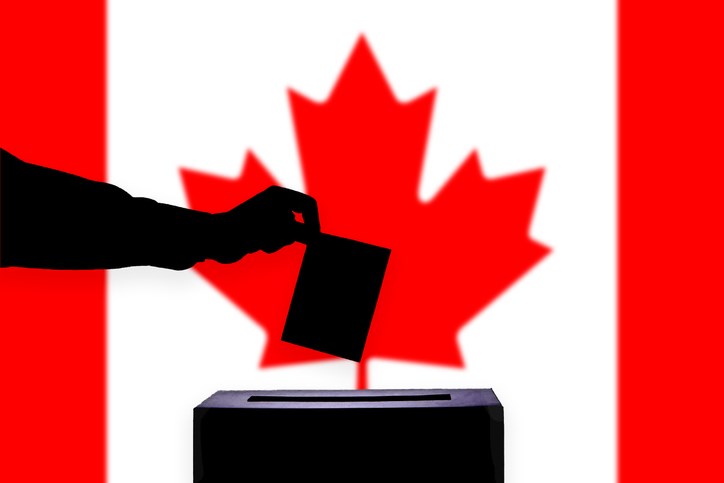There are many reasons to select a party in a Canadian federal election.
Some voters look at policy platforms, while others concentrate on the local candidates. The personality traits of party leaders, while not as crucial here as they are in countries that operate under a presidential system, can deeply affect the outcome of an election.
In September 2019, when we asked Canadians about the best leader to handle specific tasks, Prime Minister and Liberal Party leader Justin Trudeau had a sizable advantage on health care, housing homelessness and poverty, and foreign affairs. The incumbent was essentially tied with then Conservative leader Andrew Scheer on four other issues: public safety, economy and jobs, energy and pipelines, and accountability and leadership.
Now, almost two years after that measurement, the supposedly untested Erin O’Toole is doing better than his predecessor. In the latest Research Co. and Glacier Media survey, the Conservative leader is ahead of Trudeau as the most competent manager of the economy and jobs (34%), energy and pipelines (32%), and accountability and leadership (27%).
Trudeau maintains the upper hand on other issues, such as crime and public safety (32%), immigration (30%), health care (29%) and the environment (28%). New Democratic Party (NDP) leader Jagmeet Singh is the preferred leader to manage housing, homelessness and poverty (27%). Housing is a major concern in the urban ridings located in Metro Vancouver and the Greater Toronto Area, where the Liberals are defending seats that are currently held by federal cabinet ministers.
One finding is particularly striking. On foreign affairs, where experienced prime ministers have the advantage of shaking hands with foreign dignitaries, Trudeau and O’Toole are tied with 30%. It is also noteworthy that O’Toole is seen as a better person to negotiate with U.S. President Joe Biden on trade and security issues (34%), lead the federal government in the event of a terrorist attack (32%) and negotiate with Russia over Arctic sovereignty (31%). This is unusual. When I asked similar questions during the 2011 federal campaign, Jack Layton and Michael Ignatieff were nowhere near Stephen Harper on these three matters.
Liberal supporters might take solace in the fact that Canadians prefer Trudeau to be the Prime Minister in the event of another Quebec referendum (31%) and to represent Canada at global climate change talks (30%). The Liberal leader scores highly on other characteristics, leading his rivals on being the one person Canadians would have a drink with at the local bar (28%), invite to their sports team (also 28%), rely on as a babysitter (25%) and invite to their trivia quiz team (23%, with Singh close behind at 21%).
While Singh is not ahead on any of the personality categories, he is virtually tied with Trudeau on being the person Canadians would have a coffee or tea with (27%, with Trudeau at 26%) and who would provide a good recommendation on a book to read (22%, with Trudeau at 21%).
The survey serves as a good explanation for the recent polling numbers that saw a dwindling Liberal lead and a resurgent Conservative Party. O’Toole is clearly not the person Canadians would call upon for conversation, culture or stamina. But, on several policy concerns, he holds a sizable lead over the current prime minister and the leader of a party that has never formed the federal government.
Trudeau has a tough task ahead. While Canadians were consistently satisfied with the way the COVID-19 pandemic was managed, some are ready to look beyond the current government and wonder if the economic recovery will be better managed by a different prime minister. The timing of the campaign was not as ideal as it seemed. At this moment, it is the leader of the opposition who has succeeded in looking “prime ministerial.”
The two televised debates that will take place later this week will feature the leaders of only five federal parties. When we asked Canadians about the decision of the Leaders’ Debate Commission, there was not much sympathy towards two politicians who did not receive an invitation. Canadians are more likely to agree with leaving People’s Party leader Maxime Bernier and Maverick Party leader Jay Hill off the stage (42% and 44% respectively) than to support the addition of two more podiums (33% and 27% respectively).
Finally, we took an early look at the act of voting itself. We found out that 17% of Canadians are thinking of casting their ballots by mail later this month, a proportion that rises to 21% in Alberta and 30% in British Columbia. This last statistic makes sense, as 31% of the votes cast in the last B.C. provincial election were sent by mail. Other areas of the country are not feeling the same impetus to avoid a polling station on Election Day.
Mario Canseco is president of Research Co.
Results are based on an online study conducted from August 28 to August 30, 2021, among 1,000 adults in Canada. The data has been statistically weighted according to Canadian census figures for age, gender and region in Canada. The margin of error, which measures sample variability, is plus or minus 3.1 percentage points, 19 times out of 20.



